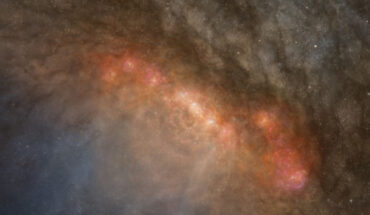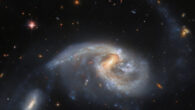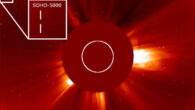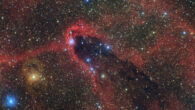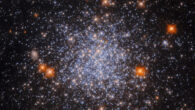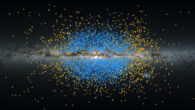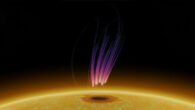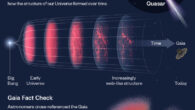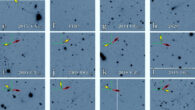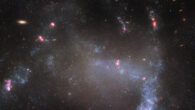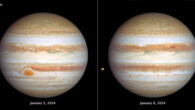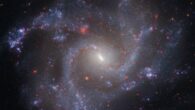Astronomers using the Atacama Large Millimeter/submillimeter Array (ALMA) have detected over 100 molecular species in the center of the starburst galaxy NGC 253 — far more than previously observed in galaxies beyond the Milky Way. An artist’s impression of the center of the starburst galaxy NGC 253. Image credit: NRAO / AUI / NSF. In the Universe, some galaxies form stars much faster than our Milky Way Galaxy. These galaxies are called starburst...

